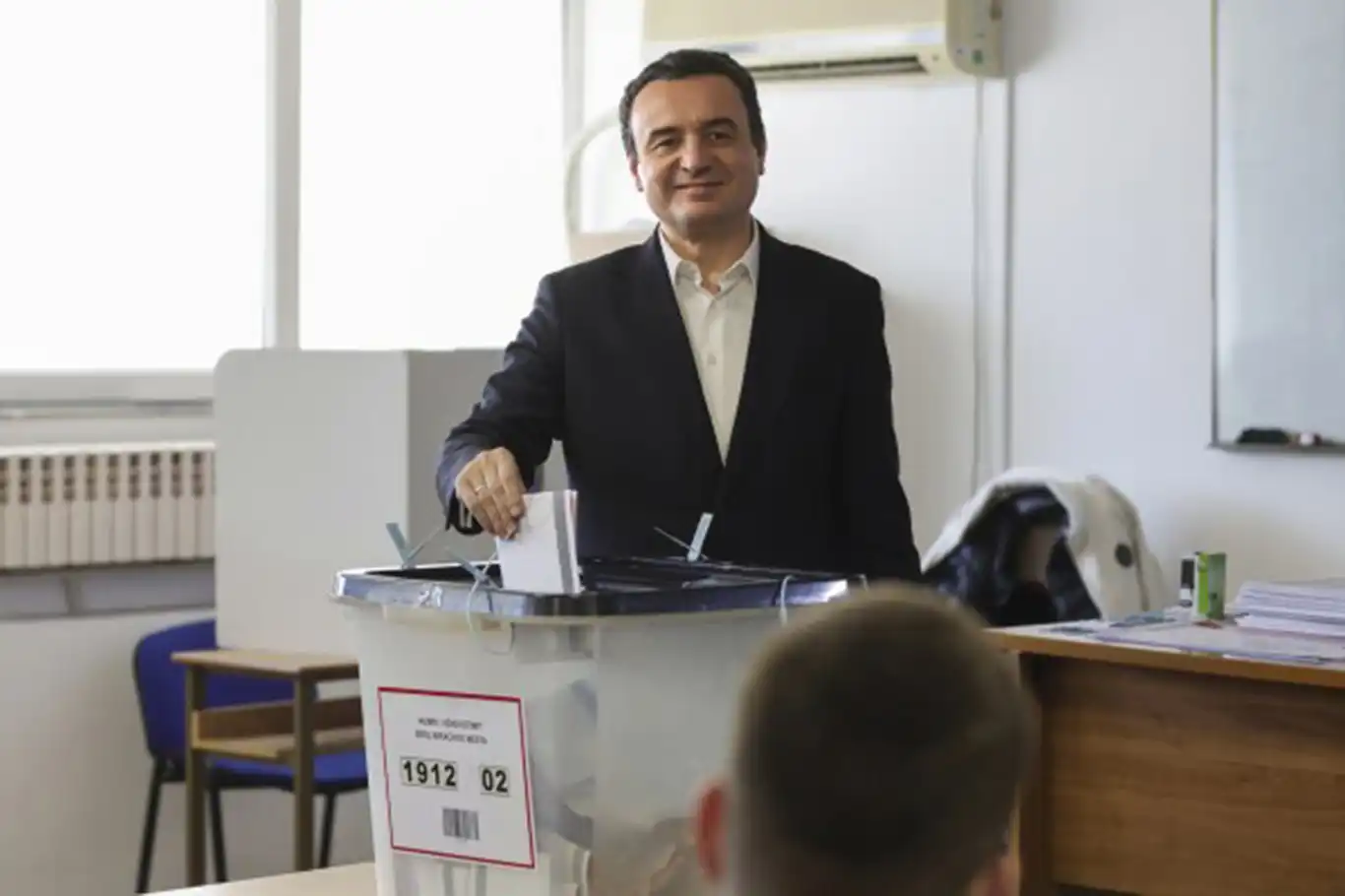Kurti claims victory in Kosovo parliamentary elections


Kosovo's Prime Minister Albin Kurti has declared a victory for his ruling Vetevendosje! (Self-Determination) Movement Party in Sunday's parliamentary elections, despite exit polls suggesting his party may be slightly short of an outright majority.
According to exit poll projections, Vetevendosje! secured around 40% of the votes compared to 50% in the previous 2021 election. However, a media report from the Koha news group later indicated that Vetevendosje! might have received 42% of the vote, translating into 47 seats in the 120-member parliament. The remaining key competitors include the Democratic Party of Kosovo (PDK) polling at 21%, the Democratic League of Kosovo (LDK) at 20%, and the Alliance for the Future of Kosovo (AAK) with 6%.
The election, held against a backdrop of an ailing economy and heightened ethnic tensions between Albanians and Serbs, marks the first time since Kosovo declared independence in 2008 that its parliament has completed a full four-year mandate. However, official results remain unclear due to persistent technical issues with the Central Election Commission's counting system.
Prime Minister Kurti expressed confidence in his party's mandate, stating: "We are the [winners] and this is confirmation of a good, prosperous, and democratic government. Our coalition will form our third government. It will continue the work. The people won, Vetëvendosje won."
Meanwhile, President Vjosa Osmani called on the Central Election Commission to ensure that every vote is counted correctly, urging the body to "protect the integrity of the electoral process." The media group Koha’s editor, Besnik Krasniqi, went further, suggesting that the commission's chair be dismissed due to the unacceptable failure of the system for preliminary results.
The elections also have significant implications for Kosovo’s regional relations, particularly in the stalled normalization talks with Serbia facilitated by the European Union. Kurti’s policies, including efforts to extend government control over the ethnic-Serb majority in northern Kosovo, have drawn criticism from the EU and the US, while opposition parties are advocating for a more conciliatory approach.
The center-right LDK campaigned on joining NATO and restoring relations with the US, and the PDK, founded by former Kosovo Liberation Army fighters, remains a significant contender. Additionally, AAK leader Ramush Haradinaj, a former prime minister, indicated his willingness to cooperate on forming an opposition government aimed at preventing Kurti's return to power.
Under Kosovo’s constitution, 10 seats in the parliament are reserved for the Serb minority, and another 10 for other minority groups. These seats have traditionally been occupied by parties that have previously cooperated with Vetevendosje, though Kurti has maintained that he will not work with opposition parties.
As the nation awaits official results, the outcome of the election is set to shape not only Kosovo’s domestic political landscape but also its approach to the ongoing challenges of economic instability and regional normalization. (ILKHA)
LEGAL WARNING: All rights of the published news, photos and videos are reserved by İlke Haber Ajansı Basın Yayın San. Trade A.Ş. Under no circumstances can all or part of the news, photos and videos be used without a written contract or subscription.
A total of 577 Afghan refugee families returned to their homeland on Monday, marking a significant rise in ongoing repatriation efforts and reflecting a broader movement of displaced Afghans returning home after years abroad.
The Director of UNRWA Affairs in the West Bank, Roland Friedrich, has warned of an escalating humanitarian crisis in the northern West Bank following a new Israeli demolition order targeting Nur Shams refugee camp.
Israeli regime forces resumed artillery bombardment and air raids on several eastern Gaza neighborhoods despite the ceasefire agreement that took effect on Oct. 10.
Bihar Chief Minister Nitish Kumar is facing mounting criticism and public outrage after an incident at an official government ceremony in which he removed the hijab of a Muslim woman doctor, an act widely condemned as a violation of religious freedom, personal dignity, and constitutional rights.